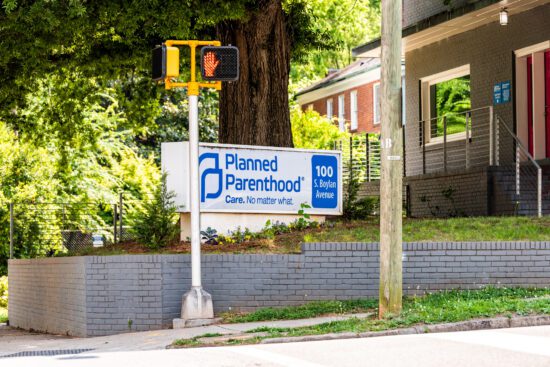National Mental Illness Awareness Week is traditionally held in early October to draw attention to the struggles of the 20% of adults and children who experience a mental health disorder in any given year. I have been tremendously encouraged by the proliferation of churches implementing influential and creative ministry strategies to share Christ’s love with individuals and families affected by the full range of mental health conditions since last year's awareness week.
Several influences are serving as catalysts to the new interest in mental health ministry. Research published by LifeWay over the past five years has pointed out the need for more effective ministry for families impacted by severe mental illness along with the need to reexamine church processes when members approach pastors and church staff because they are or a loved one is contemplating suicide. Several ministries with a national scope have emerged to resource churches with an interest in mental health. Finally, denominations and organizations such as the ERLC have done a wonderful job of increasing awareness of mental health concerns.
Our Key Ministry team has connected with many churches seeking to implement a mental health ministry plan. Here are seven ideas we've seen implemented that churches might consider in the coming year.
1. Preaching on mental health-related topics. According to the LifeWay study, the most common response from family members when asked how churches might better assist them in caring for loved ones with mental illness was to talk more openly about mental illness so that that the topic is not taboo. Pastors seeking an example of a sermon series on mental health might check out the messages Rick Warren shared at Saddleback Church in the aftermath of suicide.
One senior pastor followed a weekend mental health training for staff and volunteers by opening Sunday morning worship with a prayer for everyone present suffering from depression. Our team has participated in Mental Health Sundays hosted by local churches to launch or increase awareness of their ministries. One of the most powerful experiences I witnessed during a Mental Health Sunday was a "conversation" hosted by the pastor between services in which several highly respected church members shared their personal experiences with mental illness.
2. Offering biblically-sound mental health education and support groups for education, encouragement, and support. The Grace Alliance was launched nearly 10 years ago by a Baylor University neuropsychology professor and a Baptist pastor caring for his wife as she received treatment for bipolar disorder. They provide a model for Grace Groups for individuals, families, and college students hosted by churches in every region of the country. Fresh Hope is another national ministry organization offering Christ-centered peer support groups in over 25 states and six countries.
3. Helping members and attendees access mental health services, including high quality counseling. The LifeWay mental illness study revealed a huge disconnect between perceptions of pastors and family members regarding availability of mental health referral lists to members in need—68% of pastors (but only 28% of family members of someone with acute mental illness) reported their church maintains such a list.
A large church in our home region supported the creation of Fieldstone Counseling, a network of counseling centers supporting the needs of local church members. Counseling centers develop partnerships with churches in the communities they serve. Khesed Wellness is a nonprofit organization in Colorado that places licensed mental health professionals who agree to see clients for a discounted fee in office space donated by local churches.
4. Educating church staff and volunteers. More and more pastors and staff members are attending trainings focused on helping families of children with common mental health or developmental disabilities overcome the challenges they experience in attending church. We're seeing increases in the number of churches training staff in mental health first aidand trauma-informed care. Seminarieshave begun to schedule mental health training events for pastors, alumni, and students.
5. Opening a mental health resource center. Crossroads Church in central Ohio opened a mental health resource boothin a prominent location with free resources from NAMI, other educational resources and brochures from counseling centers personally vetted by members of the mental health ministry team. A team member staffs the booth at all worship services to make personal connections. Jeremy Smith is a counselor who serves on their mental health team and authors the Church and Mental Health blog. He developed a series of mental health awareness cardsdistributed through the resource booth available for use by other churches.
6. Establishing a suicide protection policy. Awareness of a need for churches to develop and implement suicide protection policies has intensified as a result of the steep increases in suicide rates reported among teenagers and adults in the U.S.; the observation that many Americans approach pastors as first responders during a mental health crisis; and the extensive publicity around the suicide of Jarrid Wilson, a young pastor, author, and mental health advocate. Here's one example of such a policy, available for churches to adapt to their local situations.
7. Providing tangible help to affected individuals and families. One simple, yet powerful way to express care for families in the midst of a mental health crisis is to provide casseroles and other prepared meals if the church does so for families experiencing other medical crises.
The vast preponderance of families caring for children and teens with serious emotional disturbances have little or no access to respite care. Churches offering respite events for children with special needs can welcome families of children with severe mental illness by eliminating requirements for parents to identify their child's disability at registration.
This list is not exhaustive, but it’s a start. Is your church doing something that's working well in ministry with families impacted by mental illness that you didn't see here? Our ministry team would love to hear from you and explore how we might help you share your church's strategy with a larger audience.










